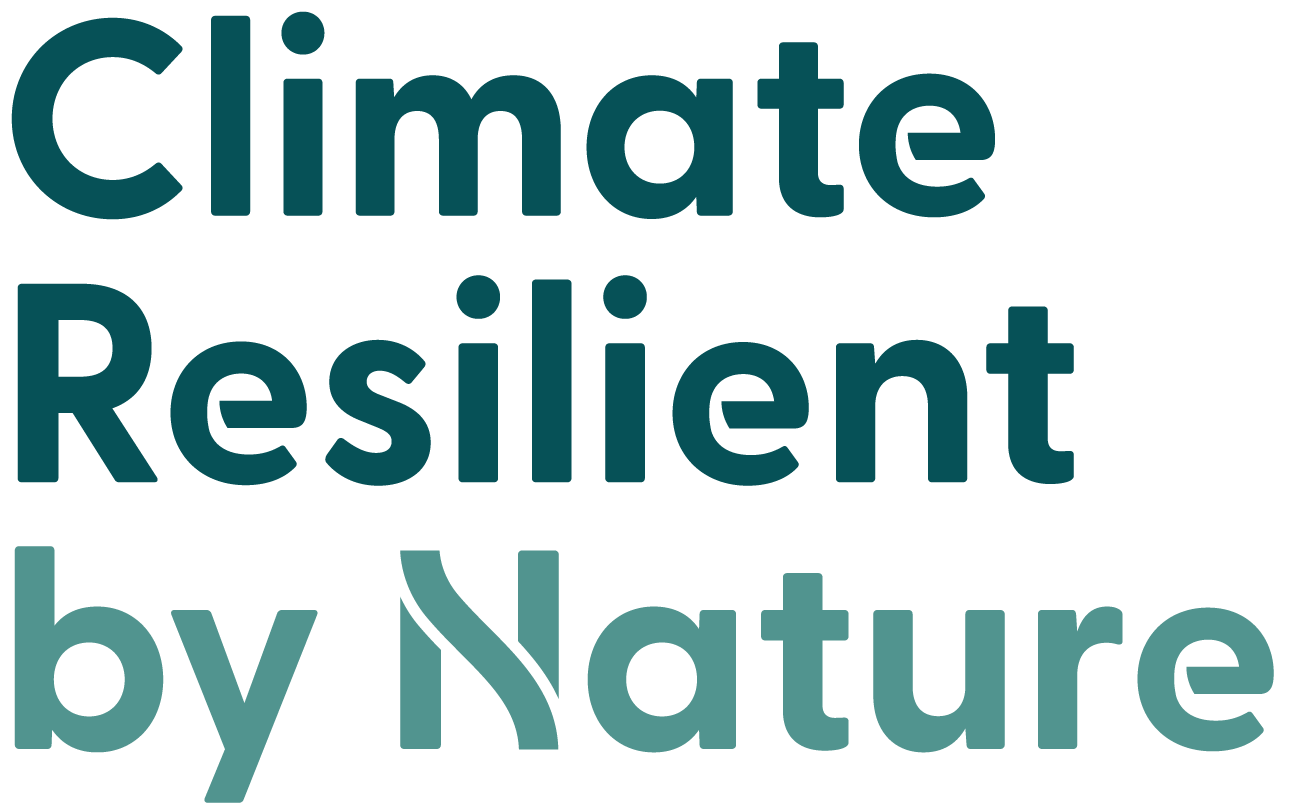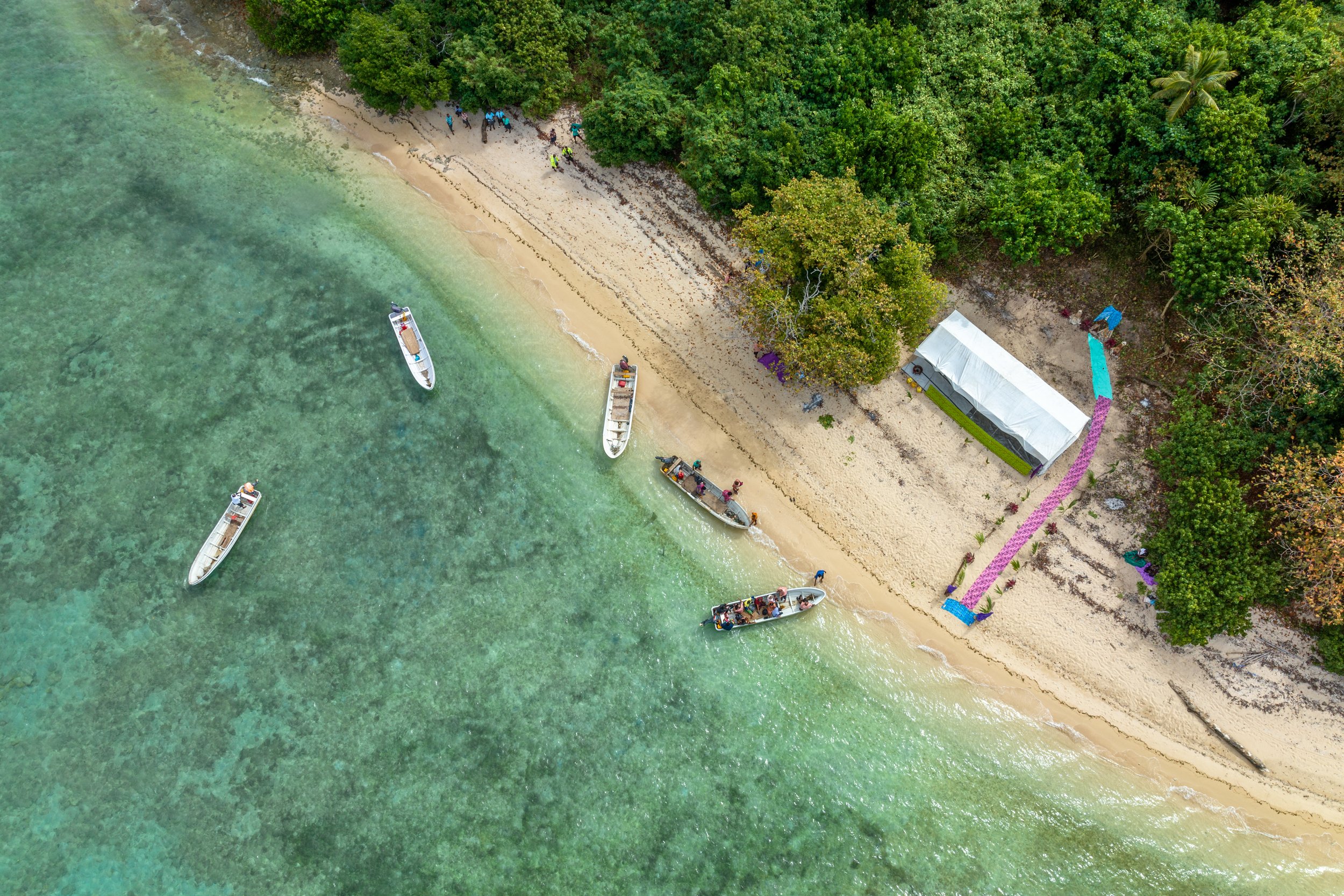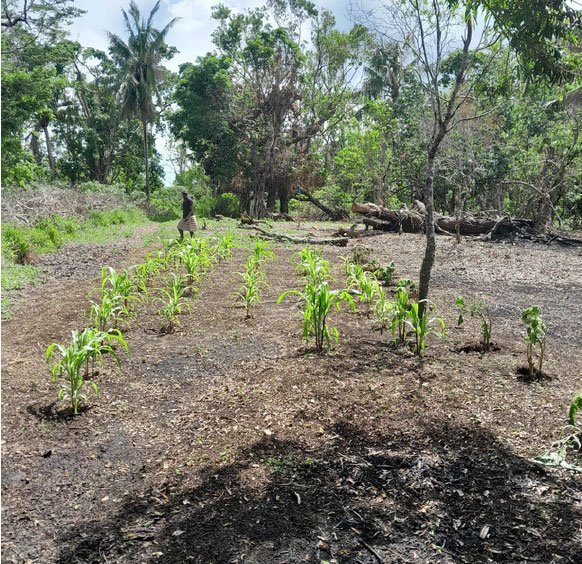2024 year in review
Take a look back at some of year’s wins for climate, communities and nature.
Don Khone community river patrol © WWF-Australia/Veronica Joseph
Protecting critical wetlands and livelihoods in Laos
Nine fish conservation zones covering 86ha have been established in Laos’ Siphandone Wetlands, as part of our objective to support communities to deploying nature-based solutions to protect and restore critical ecosystems and build community resilience. Working with the community and local partners, WWF-Laos has also supported the creation of a community river patrol (pictured) that helps ensure illegal fishing does not take place within the zone. This year, a total of 181 river patrols were conducted to monitor compliance, leading to the removal and confiscation of fishing gear. As a result of the fish conservation zones and river patrols, community members have observed a diversity of fish species returning to the area. In addition, a survey of fishers found a 44% increase in catch per unit in 2024, compared to the previous year. The indicates an increase in fish stock, and the overflow into areas outside the fish conservation zone will help ensure the sustainability of this food and income source for communities.
Ingredients harvested through nature-based farming techniques ©WWF-Vietnam
Building a market for nature-based products in Viet Nam
WWF-Viet Nam recently showcased some delectable dishes made from local produce cultivated with nature-based farming methods at a networking dinner. Dishes on the night were developed by some of Saigon’s exciting chefs using ingredients including floating rice, lotus roots, prawns and crabs. The event was attended by representatives from farming communities, businesses (manufacturers, retailers, exporters) and investors. By fostering connections between these groups WWF-Viet Nam hopes demonstrate the business case for nature-based solutions, including their potential to create new and/or diversified livelihood opportunities. In turn this can incentivise further adoption of farming practices that support floodplain restoration, delivering benefits for people and planet.
By working with an exporter, this year the products have already reached new markets in Germany and the United Kingdom.
Kilu and Oneidah harvesting sustainable sea grapes in Boboe
© WWF-Pacific / Torn Parachute
Knowledge sharing to scale nature-based solutions in Solomon Islands
WWF-Solomon Islands launched a Sea Grapes Manual, developed in close collaboration with the sea grape harvesters and marine resource management committees from the communities of Sairagi, Boboe, Kongulavata, and Pusiju in the Solomon Islands. This manual is a rich compilation of local knowledge, traditional practices, and conservation strategies aimed at enhancing the sustainability of sea grape resources and delivering outcomes for people and planet. Climate Resilient by Nature is committed to building a community of practice and facilitating knowledge exchange. Resources like the Sea Grapes Manual can help share critical learnings on how to make nature-based solutions work for people and nature across the Indo-Pacific.
Community members arrive for CPA dedication
© WWF-Pacific / Tom Vierus
Blending local culture and ancestral knowledge with formal protection in Fiji
In Fiji, a 70-hectare Community Protected Area (CPA) around Nukuvadra and Katawaqa Islands was established. These two islands are key mangrove habitats and nesting sites for endangered hawksbill turtles. The protected area came about through a process that brought together customary governance structures to inform decision-making and traditional conservation practice of ‘tabu’ - a temporary or indefinite closure of fishing grounds. This was then formalised with the structured, participatory regulatory mechanisms of the CPA. Bringing together local communities so they are involved in decision-making related and can play an active role in protecting and restoring critical ecosystems, is key to ensuring nature-based solutions deliver equitable outcomes.
Coral nursery in Fiji © Kyeema Foundation
Enhancing climate resilience of coral reef ecosystems
Kyeema Foundation and Corals for Conservation have trained 19 Indigenous marine scientists from Fiji, Papua New Guinea, Samoa and Kiribati on how to establish coral nurseries and propagate and manage heat-tolerant corals. After completing training, scientists were supported with seed funding to develop coral nurseries in their own communities.
Coral nurseries have also been set up in Kiribati in collaboration with two government organisations. A further three community managed nurseries have been established in Papua New Guinea and Fiji.
The project aims to restore compromised reef ecosystems and maintain the protective climate-related benefits they provide through Indigenous-led, nature-based solutions. This in turn will help reduce the vulnerability of coastal communities to climate-related shocks such as marine heatwaves, rising sea levels and increasing storm surges and coastal erosion.
Community demonstration plot © ActionAid
Supporting climate resilient livelihoods in for Ni-Vanuatu women
Nature-based solutions are offering new and diversified income generating opportunities for Ni-Vanuatu women.
This year ActionAid directly engaged 450 women across 10 communities in livelihood enhancing agroecology activities. In the remote island of Erromango, women have been supported to plant and harvest climate resilient crops such as taro, wild yams and sweet potatoes. Since the project started, there have been three harvests with produce sold at local markets. New, diversified and climate-resilient livelihood opportunities provides women with sustainable income for food, household essentials and school fees for their children.
Dorolyn Ser, Finance Officer with the Loru Community Conservation Area © WWF-Australia / Charlotte Sterrett
Trialling new approaches to forest carbon projects
This year we continued to support the development of new high-integrity carbon markets linked to nature-based solutions investments. As part of this, Nakau and Live and Learn Environment Education Vanuatu have been piloting an approach that links invasive species management to long-term carbon market finance. This involves supporting customary landowners to manage Merremia peltata (also known locally as big lif), which smothers much of the forest across Vanuatu and other Pacific nations. Connecting Merremia management with the carbon market incentivises the restoration and conservation of forests, allowing trees to continue their natural role capturing and storing carbon, supporting biodiversity, and providing food and income generating opportunities for communities. Leading on from this pilot work, the project has also started working alongside the Vanuatu Government to develop a national-scale program for similar projects across the country.
Mangrove replanting site © WWF-Australia / Georgia Davis
An inclusive approach to mangrove restoration
In Solomon Islands, World Vision and partners have worked with over 700 people in eight communities this year to implement Farmer Managed Natural Regeneration (FMNR) techniques to restore mangroves. Within each community, a committee has been established that has developed and approved by-laws that outline protective actions for a specific area. In most cases this includes a ban on cutting mangroves and forests and restrictions on fishing to allow these areas to regenerate.
This year, women’s representation on the FMNR committees has increased, helping to position women in decision making roles related to nature-based solutions. 300 school students have also been engaged in learning about FMNR as part of an inclusive approach to build community capacity and leadership.
Domingos coordinates his community’s forest management plans, © Catholic Relief Service
Regenerating degraded landscapes in Timor Leste
In Timor Leste, Caritas and Catholic Relief Services have employed agroforestry as a forest management tool across 10 sucos (communities), spanning 187 hectares in Baucau and Viqueque.
Domingos (pictured) is a sub-village chief who has been elected by other community leaders as a coordinator for his community’s forest management plans. As part of this, awareness raising activities and trainings have been held aiming to prevent slash and burn agricultural practices. 3,537 individuals across the target communities have been engaged in such training.
“As the population increases, land degradation is one of the issue in my community that we need to address, we are so happy that the Transforming Rural Lives through Adaptation and Carbon Capture project is implemented in my community. It enables us to take care of environment by planting trees - not only in the household level for agroforestry but support community land for reforestation and tree planting to protect biodiversity and improve the ecosystem in this community.”









